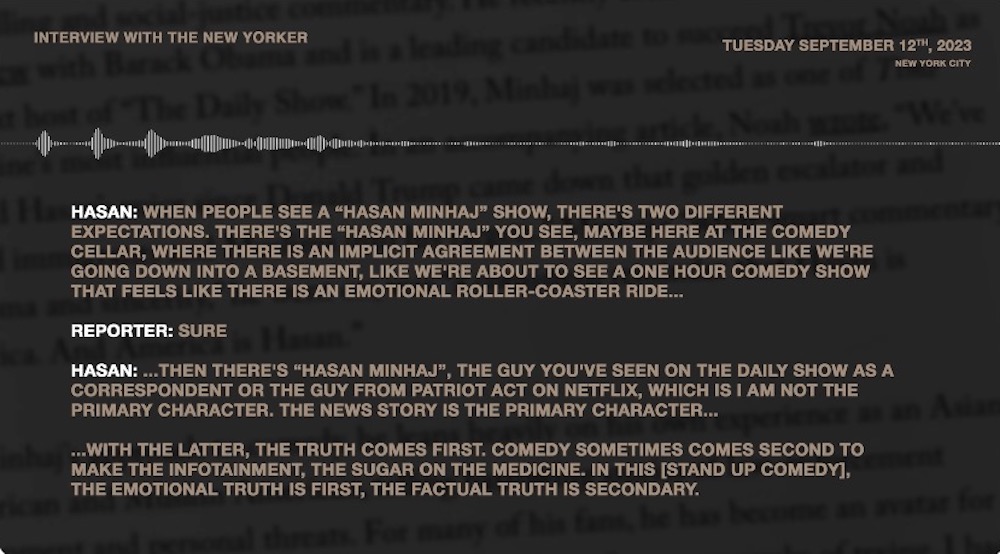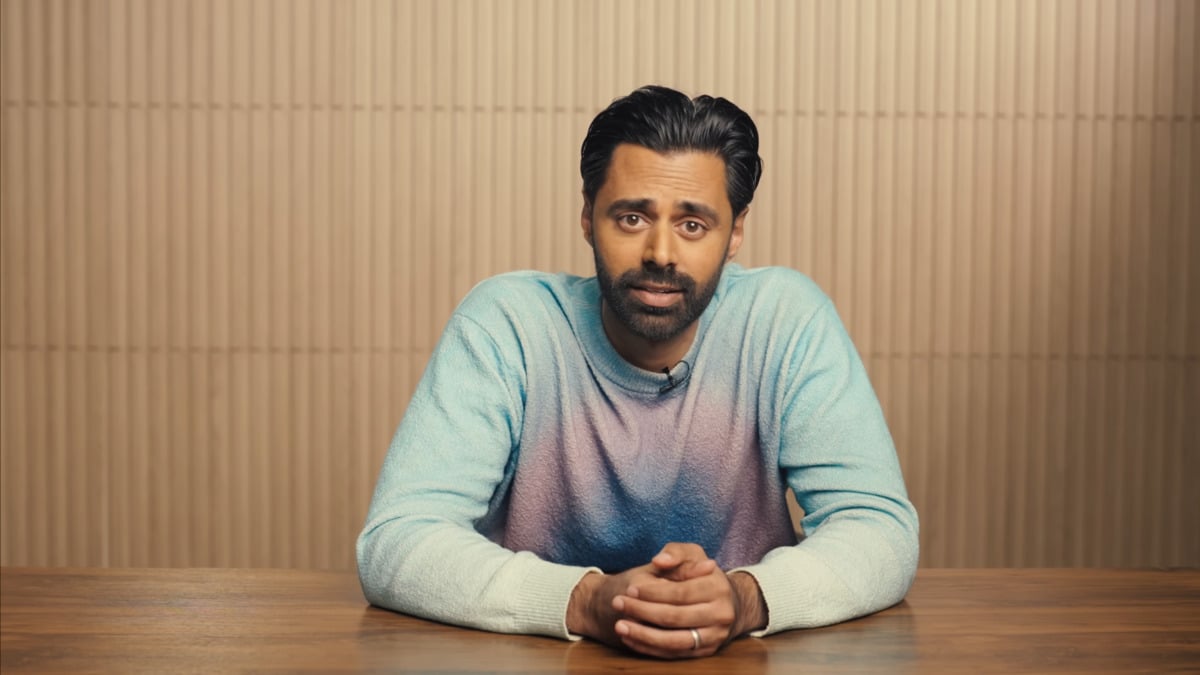Hasan Minhaj has defended himself against the New Yorker’s recent explosive article challenging the factuality of his stand-up comedy. The article in question portrayed Hasan’s experiences, which were presented in his comedy specials, as complete works of fiction. From his racially discriminatory experiences up to his supposedly imagined argument with his wife, all of these instances were painted as half-truths.
The reason Hasan came out to defend himself was because the article essentially accused him of faking racial discrimination and suffering from Islamophobia in several of his comedic performances. In his response video, Minhaj called the New Yorker’s article to be “needlessly misleading” and stressed the fact that “racism, FBI surveillance, and threats to my family happened.”
Over the course of 20 minutes, Minhaj did “the most Hasan Minhaj thing ever” and provided viewers with the receipts he says he gave to The New Yorker that they ignored, all in order to try to prove that the magazine article misconstrued his character and creative process by a mile.
Minhaj took on three specific stories that he tells in his standup: being rejected by his prom date because of his race, the FBI’s surveillance of mosques, and an anthrax powder scare. He admits, as he did to The New Yorker’s Clare Malone, that there are some embellishments and some creative liberties to enhance the storytelling. When Malone quotes Minhaj as defending the “emotional truth” of his stories, it comes off as derisive. She even makes it the title of her article. But by dismissing the importance of the emotional truth behind his stories, Minhaj says she ends up distorting the factual truth, as well as his personal intentions.
Minhaj shares that he altered the timeline of the prom story in order to “drop the audience into the feeling of that moment.” He also shares a recording of him explaining this to the reporter and compares it to the finished section of the article, which he says “makes it sound like I got friendzoned by Bethany and then I turned into an angry incel and then faked racism to get back at her.”
In regard to his stories about interactions with the FBI as a young Muslim, he argued that many in his audience didn’t understand that the FBI spying in mosques is a reality and that many of his viewers find the feelings to be foreign. He wanted to recreate the feelings for viewers so that they understand the paranoia only Muslims could feel, and he was transparent to the New Yorker about the creative liberty he took to make his experience digestible for a wider audience.
Minhaj also clarified that his story about the anthrax powder scare did have some embellishments but explained at length his process for crafting the real fears and dangers into a more effective story—something comedians do all the time.
Malone summed up Minhaj’s approach to storytelling as “the emotional truth is first. The factual truth is secondary.” Minhaj said he fought to have his full quote included in the article, as it lays out a clear, thoughtful explanation of the difference between his stage shows and his news-comedy hosting roles—a distinction that Malone made central to her article yet omitted Minhaj’s explanation of.
In his video, Minhaj shares the full quote via a recording of their interview:

The New Yorker’s article caused a ripple effect of negative and accusatory articles towards Minhaj, and seems to have cost him a job as host of The Daily Show. In his video, Hasan called out the irony behind reporters from The New Yorker seemingly failing to fact-check their article despite being given all the resources to do so. It seems that many people are right behind him on that take.
(featured image: YouTube)









Published: Nov 9, 2023 05:40 pm